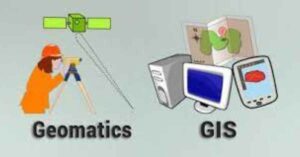
English Sentence & Types of Sentence
How to write a sentence? or How to write sentences need best understanding of English gramar which help to pass the initial tests of English. Learning English grammar is very necessary for passing all tests of Pak Defence forces.
If you are interested to join Pak Forces then see the following definition of sentence and its types. These notes are particularly helps those students who are preparing tests for joining Cadet Colleges. If you want to learn about more then Subscribe our YouTube channel of Shaheen Forces Academy, or Forces Intelligence.
You can practice online HERE and for more notes of the subjects CLICK HERE.
Related:- Practice Tests of English Grammar
DEFINITION OF SENTENCE
It is a group of words giving a complete thought and sense. A sentence must contain a subject, verb and object.
It is a set of words that is complete in itself, typically containing a subject and predicate, conveying a statement, question, exclamation, or command, and consisting of a main clause and sometimes one or more subordinate clauses.
TYPES
It can convey a statement, a question, a request, an exclamation, or a command. There are five types of sentence:
1. ASSERTIVE (DECLARATIVE)
An assertive (declarative sentence) simply expresses an opinion / feeling, or makes a statement, or describes things. In other words, it declares something. This type of sentence ends with a full-stop.
Examples:
- · I want to be a good cricketer. (a statement)
- · I am very happy today. (a feeling)
2. INTERROGATIVE
An interrogative asks a question. Interrogative sentences must end with a note / sign of interrogation (i.e., question mark?)
Examples:
- · When are you going?
- · Do you know him?
3. EXCLAMATORY
An exclamatory expresses overflow of emotions. These emotions can be of happiness, wonder, sorrow, anger, etc.
Examples:
- · Alas! I lost my pen.
- · Hurrah! We have one won the match.
4. IMPERATIVE
We use an imperative to make request, order and a piece of advice. Imperative usually end with a period (i.e., a full stop), but under certain circumstances, it can end with a note of exclamation (i.e., exclamation mark).
Examples:
- · Please sit down.
- · Open the door.
5. OPTATIVE
Optative is a type of grammatical category which deals with the mood and how to express it. You can consider moods as in wish, prayer, desire, curse, etc. Generally, you will find that an Optative begins with words like ‘may’ or ‘wish. Sometimes you might also find these sentences beginning with ‘let’.
· May you live long?
- Wish you a happy and safe journey together.
For more notes Click Here
Related: Practice Tests of English Grammar






